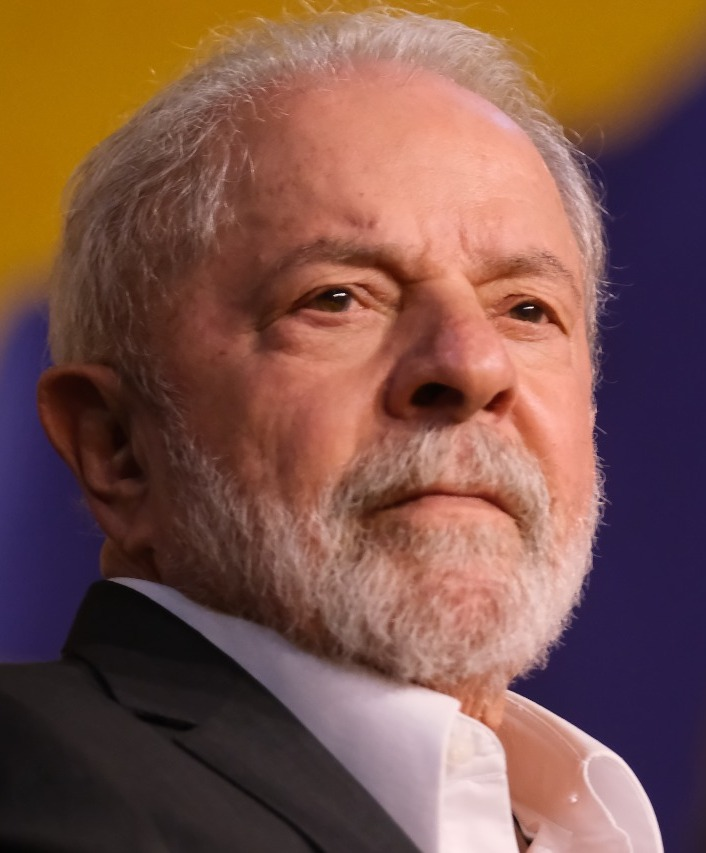More languages
More actions
Luiz Inácio Lula da Silva | |
|---|---|
 | |
| Born | 27 October 1945 Caetés, Pernambuco, Brazil |
| Nationality | Brazilian |
| Political orientation | Social democracy |
Luiz Inácio Lula da Silva, commonly known as Lula, is a Brazilian Workers' Party politician and the president of Brazil from 2003 to 2010.[1] He cofounded BRICS and seeks to strengthen Latin American unity through regional organizations like CELAC, UNASUL, and Mercosul. He also proposed creating a new currency for all of Latin American to free it from the US dollar.[2]
Life
Born on October 27, 1945, in Caetés, Brazil, Lula grew up in poverty and had little formal education. He began working at a young age to help support his family, and became involved in the labor movement in the 1970s, being arrested multiple times by the fascist brazilian corporatist-military government.
Lula rose to prominence as a leader of the Workers' Party (PT), a social-democratic political party that he co-founded in 1980. He ran for President three times before finally being elected in 2002. As President, Lula implemented a number of social programs that helped to reduce poverty and inequality in Brazil, and he was widely popular among the Brazilian people. He was re-elected in 2006, and in his second term, began conceding to the brazilian national-bourgeoise.
After leaving office in 2011, Lula faced legal troubles and was sentenced to prison on corruption charges in 2018. He was released from prison in 2019, and remains an important figure in Brazilian politics. He won the 2022 presidential election against the neo-fascist Jair Bolsonaro and was inaugurated on 1 January 2023.
References
- ↑ "For the independent mobilization of the working class against the threat of dictatorship in Brazil" (2022-09-30). WSWS. Archived from the original on 2022-10-01. Retrieved 2022-10-06.
- ↑ Ben Norton (2022-10-31). "Lula wins Brazil election: Game-changer for BRICS and Latin America" Multipolarista. Archived from the original on 2022-10-31. Retrieved 2022-11-01.
